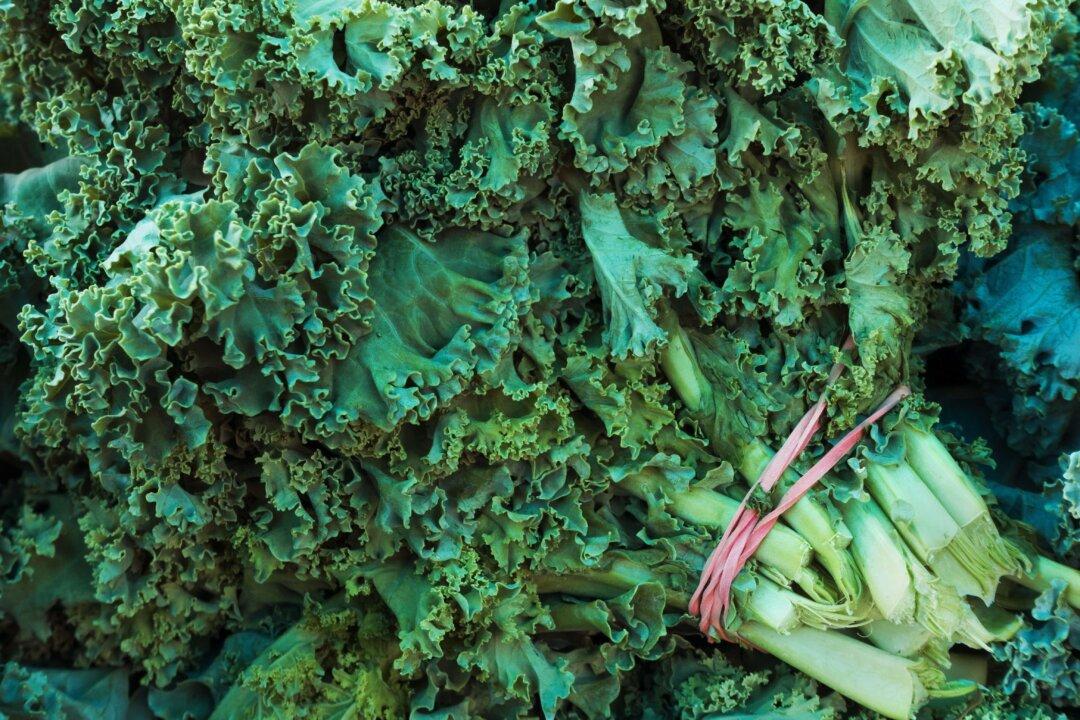Hailed for years as a potent “superfoods,” kale’s healthy credentials are being sullied by a report into residues of pesticides—which have been found to be higher in kale than almost any other vegetable.
The latest annual report from the privately-funded Environmental Working Group (EWG) puts kale near the top of its “Dirty Dozen” pesticide-laden fruit and vegetables.





